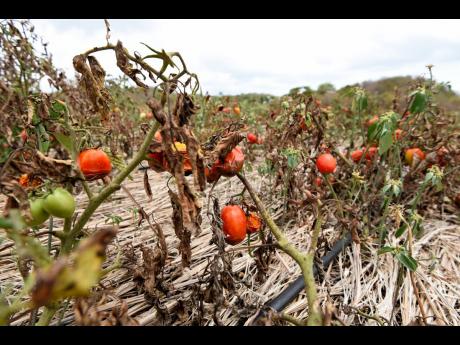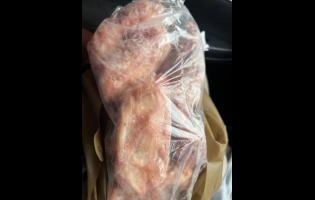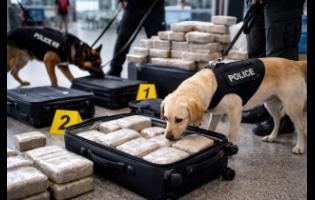No cooling down the heat
Evan Thompson, principal director of the Meteorological Service of Jamaica, is warning that Jamaica will not be getting relief soon from the current heat and drought conditions.
"I would not say we have seen the worst of the heat conditions. Apart from global warming that is taking place and the regular climate change that we hear about every day, we have an El Nino phenomenon that is developing," he said.
El Nino is a weather cycle that prolongs increased heatwaves that contribute to droughts, wildfires, a wide range of health issues and even food insecurity. Jamaica has been experiencing its effects dating back to last October.
"With the El Nino taking place, it is one of the things that is driving the higher temperatures. When it was developing, we heard that it would cause temperatures generally to be a little higher than normal. So that is what we are really experiencing," he said.
In response to the drought, the Ministry of Agriculture, Fisheries and Mining has allocated an additional $104 million towards drought mitigation efforts for farmers. Portfolio minister Floyd Green made the announcement during a statement to the House of Representatives on Wednesday.
"To address the challenges of water scarcity and drought caused by climate change, we have initiated a comprehensive programme for the trucking of water to farming communities. This programme aims to provide temporary relief by delivering water to areas where access to irrigation water is limited," Green said. He added that the water trucks will transport water to farmers in need and that some $8 million has been allocated towards this activity.
In addition to climatic change causing the island to experience less rainfall, Saharan dust has also reduced the chance of rain development.
Thompson explained, however, that "The higher temperatures are not only in the Caribbean but right across the world at various places. The thing is the El Nino is not at its strongest yet. It might get stronger during the course of this year moving into the deeper part of the summer periods. We know that in Jamaica the highest temperatures are recorded between July and August. We start to see a decrease in September-October when we move to another peak in the rainfall season ... that could produce more rainfall."
"Right now we can only bet on the systems to bring us rainfall, we just have to watch and hope," Thompson added.





































